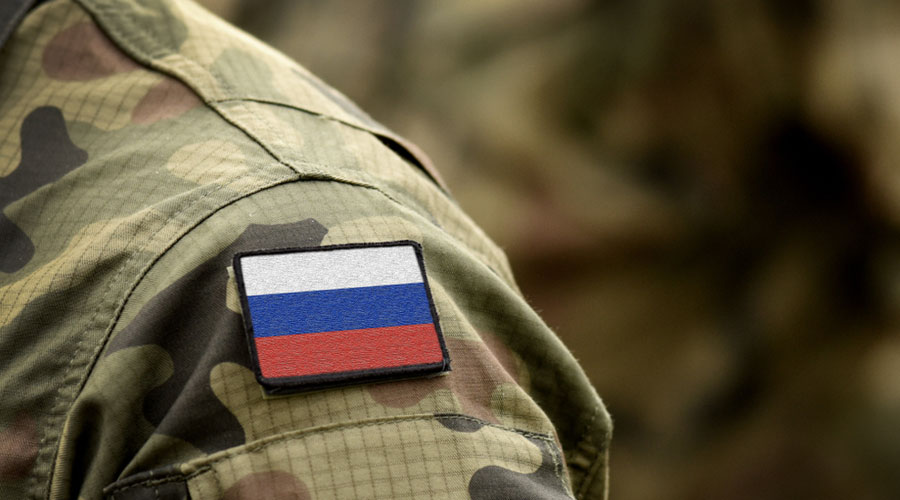Russian troops had invaded a part of Ukraine. The Kremlin claimed the move was aimed at protecting the safety and interests of Russian-origin people in the territory it had occupied. The world criticized Moscow. But India, while asking for a diplomatic solution, said Russia had “legitimate interests”, a statement seen by many as justifying Moscow’s actions.
That was March 2014, after the Russian president, Vladimir Putin, ordered the annexation of Crimea, which had been a part of Ukraine since the mid-1950s.
Now, eight years later, India faces a very similar predicament. Russian troops have entered the Donbas region of eastern Ukraine, where the enclaves of Donetsk and Luhansk are controlled by Moscow-backed rebels. The invasion into what the rest of the world recognizes as Ukrainian territory follows months of tension between Russia and Ukraine, much like in 2014. And Russia’s justification for sending its military into Ukraine is near identical to what it argued in 2014: Moscow has claimed that Ukraine is carrying out a genocide of ethnic Russians in Donbas, although Russia has made no evidence public to back that assertion.
But there’s one key difference between 2014 and 2022 — and it is likely to influence just how far India goes to stand by Russia.
In 2014, the action in Crimea followed an uprising that led to the ouster of Ukraine’s democratically elected former president, Viktor Yanukovych, after he tried to steer his country away from the European Union and towards Russia. Moscow called it a coup and blamed the West for instigating the protests against Yanukovych. The change of guard in Kiev reinforced Moscow’s belief that the West was determined to pull Ukraine into its embrace, posing an existential threat to Russia.
Here’s the thing: India and many other post-colonial, democratic states share Russia’s fears of West-supported ‘coloured revolutions’. In part, that’s a reflection of the insecurities of the ruling elites in these countries. But it’s also a reminder of the many coups against democratic governments that the United States of America and its allies did facilitate during the Cold War. Remember how the US was a boogeyman in 1970s India, when the Indira Gandhi government blamed a ‘foreign hand’ for the serial protests that roiled the nation? Fast forward to early 2014, and the embattled government of the then prime minister, Manmohan Singh, was fending off challenges both from the Bharatiya Janata Party and the Aam Aadmi Party. In 2011, at the height of the agitation by the anti-corruption activist, Anna Hazare, the Congress suggested the US was propping up the campaign against the government it was leading. The current BJP government similarly bristles at any show of support from the US government or the Congress for protesters challenging it — such as during the agitation against the Citizenship (Amendment) Act or after the revocation of Kashmir’s special status.
But unlike 2014, Putin’s aggression this time isn’t a response to any ‘coloured revolution’. Russia’s broader concerns about the threat to its security from any future NATO expansion to include Ukraine have merit. Every major nation, including India, seeks to preserve a sphere of influence in its neighbourhood. However, invading another nation on specious pretexts has little justification.
To be sure, India is unlikely to come out swinging in criticism of Russia. It will want to preserve its relationship with Moscow as best as possible. Russia remains India’s most valued defence partner. The external affairs minister, S. Jaishankar, gave the world a preview of India’s approach to the crisis while answering questions at the Munich Security Conference. Asked why India had abstained from a UN Security Council vote against Russia, Jaishankar pointed out Europe’s reticence — until recently — to take China on frontally over Beijing’s aggressive posturing in the Indo-Pacific. The point Jaishankar made was subtle. By drawing a parallel with Europe’s dalliances with China, he underscored how India’s relationship with Russia too is merely one of necessity. Just as the EU, which counts China as its biggest trading partner, has limitations on how far it can challenge Beijing, India must value ties with Russia.
But don’t expect New Delhi to speak of Moscow’s ‘legitimate interests’ in Donbas. India will offer Russia its silence — nothing more.
Charu Sudan Kasturi is a senior journalist who writes on foreign policy and international relations











